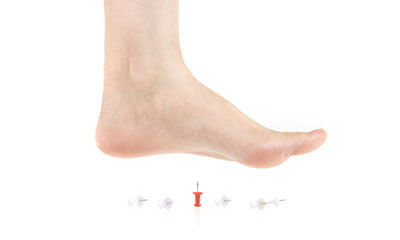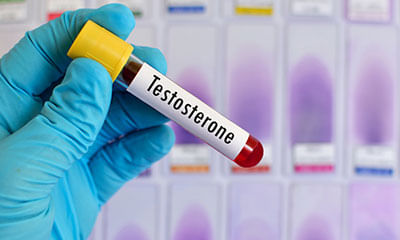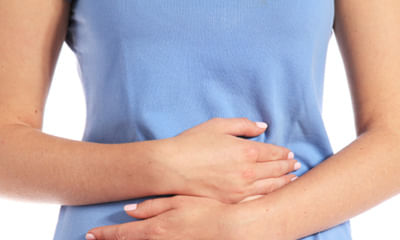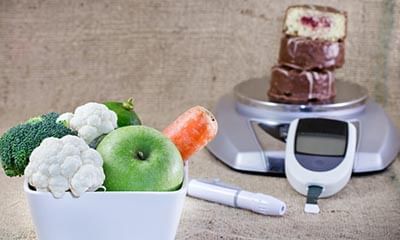Surgical Wound Dressings
My son fell from cycle last to last friday (12th Oct) he was the skin just bellow his knee bone was torn a little bit wh ...
Ask Free Question
That is very comman whenever you remove the swab first wet the swab by clean water or put the running water on swab than remove swab after 2 min, it never stick, when you dressed up use more quantity of ointment wound healing on joint or near joint took more time as compared to other site so do not worry have patience.
Hi, I had c-section delivery 3 months back. Suddenly I have burning sensation around wound incision and pain through out ...
Ask Free Question
You have to get checked with your gynae. Because due to some surgical procedures this might happen.
Hello, I was diagnosed with bacterial infection inside the tissue of scrotum. Shown to a urologist who prescribed antibi ...
Ask Free Question
Hello sir, generally for wound healing it takes 21 days to 45 days depending upon the region affected. As wound is at scrotal region it will be slower to heal and along with that age factor is also contribute as your age is about 69, at this age all the process of our body will be slower due to ageing process of cells and tissues. So don't worry and anxious it will be fine. Do walking for few minutes have more fruits and greet leafy vegetables which helps in wound healing.
Please suggest I am Suffering from pressure sore or bed sore from last 1 week ,took medicine from nearby doc. But it won ...
Ask Free Question
Hello, Thanks for your query on Lybrate "As" per your clinical history is concerned discuss with your Doctor about Tissue Culture to know the exact pathology for non-healing ulcers and follow few simple steps like this - 1) Try to change her position every 2 hours. 2) Use a mattress, bed and special cushions that help her lie in an appropriate position, relieve pressure on any sores and protect vulnerable skin. If she is in a wheelchair, use a cushion. Styles include foam, air-filled and water filled. Select one that suits her condition, body type, and mobility. 3) Clean open sores with a saltwater (saline) solution each time the dressing is changed and try to change it regularly. 4) Discuss with your Doctor about [debridement ]a surgical procedure. 5) To promote wound healing, your dietitian may recommend an increase in calories and fluids, a high-protein diet, and an increase in foods rich in vitamins and minerals. You may be advised to take dietary supplements, such as vitamin C and zinc etc. 6) Try to manage incontinence which may help improve healing. Strategies include frequently scheduled help with urinating, frequent diaper changes, protective lotions on healthy skin, and urinary catheters or rectal tubes. 7) Regarding medications, you can discuss with your Doctor about injectable antibiotics like ceftriaxone in IV and oral diazepam at bedtime. Hope that helps.
I have my appendix removed and the surgical wound is septic and had the nurse dressing everyday. What would I eat to mak ...
Ask Free Question
Hello post operative wound infection in a appendix case is common, it just needs regular dressings and antibiotic cover, and it should be okay by 1 or 2 weeks so nothing much to be worried off just leave a positive comment if useful.
My uncle 60 years of age suffering from diabetic ulcer (leg) and it's in advanced stage. We need some experienced surgeo ...
Ask Free Question
Mr. lybrate-user, Thanks for the query. In your info there is no mention of the place where you are staying (town/city). It is best to visit any experienced surgeon or surgical hospital for initial treatment. Bets is to consult a Diabeteic Foot specialist in the aera. Later based on his advice further treatment should be carried out. First and foremost is to achieve a strict blood glucose control, otherwise healing becomes a problem. Plus proper debridment is also needed. Thanks.
Hi I am c5 - c6 quadriplegic since 2006 and I since that time I have a bed sore that not healing, can anyone help me to ...
Ask Free Question
Bed sores are caused due constant pressure being exerted on the same part of the body. A lack of blood circulation gives rise to rashes and sores that initially only affect the skin. If pressure sores are left untreated, they can spread as far as the bones. Quadriplegics patient are at most risk, as they cannot feel pain in the paralyzed part of their bodies. If you notice a seemingly harmless-looking injury or reddening to the skin in immbolized pressure exerted part, it is essential to seek treatment fast, as pressure sores can spread extremely quickly. The affected skin area must be given immediate relief. Often the only way to do this is for the patient to lie down for a long time - usually on their stomach. The wounds caused by the decubitus ulcer must be treated carefully. With surface wounds it is sufficient to cleanse the affected skin and apply special dressings. If the wound has gone deeper, it has to be surgically cleaned. A special bandage that stimulates the blood circulation and encourages the reconstruction of blood vessels can help to heal the wound. This can take several weeks. Unfortunately, the scarring caused by the wound healing creates the risk of another pressure sore appearing in the same place. Consult a surgeon to treat the same.
While using surgical blade to remove hair near the rectum, I got hurt in the process and blood started oozing out around ...
Ask Free Question
Hello, Tk, homoeopathic medicine"@ Ledum pal 200-6 pills, thrice. @ CalendulaQ-20 drops, apply locally with 4 tsfl. Of water. Refrain from repeating such an injurious process, please. Tk, care.
Hi, I am going in a for a hysterectomy and would like advice on how to recover quickly. ...
Ask Free Question
My suggestion is if given an option for hysterectomy go to an experienced gynaecologic surgeon. You should opt for Laparoscopic Hysterectomy. Second option should be vaginal hysterectomy and last should be abdominal. Arrangements for quicker recovery: Before you leave for hospital, for the surgery •Make sure that you have informed your absence at a particular place (e.g. Workplace, family etc) for specific time period. •If you have got an insurance then you need to complete your paperwork for claiming benefits of surgery from the same. •You should stop taking all medicines / diets which has got tendency to thin the blood e.g. Vitamins, natural supplements, any analgesics that may contain aspirin (salicylic acid) or any blood thinner medicines. This might increase chances of blood loss during surgery. Usually your surgeon makes notice of all these issues but, if missed by any chance, then you need to inform your surgeon about these. •You need to arrange someone who can accompany you on the day of the surgery and can help during your stay at hospital. This person must be someone with whom you are comfortable because he/she may have to help you go to the bathroom, get dressed, etc. •Arrangements of meals should be made beforehand, at your home. You can buy or prepare several meals ahead of time since after surgery you will feel weak and will not have the energy to cook. •You should do your house cleaning and laundry beforehand. •You should select comfortable clothing for your convalescence. •You should select underclothing made up of cotton or satin as these textures will be less irritating to the wound and will allow you to slip out of bed more easily. •You should prepare the part of the house where you will recuperate after surgery during the first few days. You can arrange clean sheets, pillows, heating pad, analgesics, reading material, remote control, telephone, etc at your selected place so that you can manage things easily. •You can buy some good magazines, arrange few movies so that you can keep yourself occupied during your convalescence. What to pack Mostly the hospitals provide almost every required consumable. Still you should prepare your hospital bag and should go over its contents with the person who will be accompanying you so that he/she knows what you packed and where you placed the items. Make sure to pack the following: Health insurance and hospital cards Sanitary napkins Mobile charger and earphones Reading material Lip balm Lozenges Absorbent disposable tissue paper Pillow. Pre-operative appointment with Surgeon •You should ask all your doubts regarding the laparoscopic surgical procedure e.g. What will be done in surgery? What all I shall expect after surgery? What kind of anaesthesia I shall be receiving? •You should understand the instructions given to you by your surgeon e.g. When to reach hospital? Where to reach in the hospital? When to stop eating? Etc. •You should ask your surgeon whether he /she will be providing video recording / intra-operative pictures of your laparoscopic surgery. The day before surgery •You should not wear any makeup, hairspray, body lotion or deodorant. •You should remove nail polish, jewellery and contact lenses. •You should wear loose clothing such a dress without any elastic at the waist. •You should wear an undergarment so that no fabric rubs against your navel after the procedure. Also, make sure your panties are loose /comfortable or a size larger than you usually wear as they will be more comfortable if your abdomen is swollen. •You should wear shoes that are easy to slip on and off since it is uncomfortable while bending, after the procedure. •When you arrive at the hospital, try to relax. Listening to soothing music / watching movie will help. After the surgery •Once you are getting discharged from the hospital you should arrange a transport vehicle which has minimum tendency to give bumps when on road. In the vehicle, recline the seat and place a pillow against your tummy to absorb the shock of bumps in the road. •Once at home you should avoid sleeping in day time. You should can keep yourself occupied with reading magazine / watching movies / listening to music etc. It is advisable to have a sound sleep in the night. •Your abdominal muscles are expected to be discomforting for the first few days. You should take medicines as advised. •Hold a pillow against your stomach if you sneeze or cough to lessen the pain. •Your shoulders might hurt the first few days. You should sit in a reclining position and place a heating pad on your shoulders. When you feel better, walk a little around the house. •To get out of bed, roll onto your side and then gradually sit up using your arms for support. After sitting wait for a while and watch for any giddiness. Giddiness is expected for a short while and should vanish in few minutes. Once you are stable then slip your feet out of bed and then stand up. Again, wait for a while and watch for any giddiness. Once you are perfectly fine then you should start walking. •Feeling nauseous is common due to anesthetic medicines given during surgery or the medicines you might be receiving. To combat nausea, you can try few measures: rub a pad moistened with rubbing alcohol under your nose, lie down, breathe through the mouth, suck on a mint candy, eat dry crackers or drink ginger ale. •Diet should be gradually upgraded. You should start with liquids, initially, and slowly moving up to solid food. The anaesthesia and analgesics can cause severe constipation after surgery. High fiber foods are recommended to prevent constipation (e.g pears, prunes, asparagus, carrots, whole-wheat bread etc). •You should drink at least 1.5 to 2 litres of water per day. Water intake helps in preventing constipation and helps in eliminating traces of the anaesthesia. •After the laparoscopic surgery wearing tampons is avoided. As wearing tampon might obscure the significant bleeding. •After the laparoscopic surgery intercourse / sexual activity is prohibited till the surgeon recommends. •You may shower 24 hours after the surgery. Try to avoid contact of water with the stitches as this might delay healing of stitches. •After few days of surgery, you can apply vitamin E to the incision if the scar looks normal (and there are no signs of infection). Vitamin E promotes healing. •During recovery if you develop a fever, have difficulty urinating or experience heavy bleeding, contact your surgeon immediately or go to the hospital. •When you return to work, wear loose clothing and avoid wearing synthetic undergarments, which will irritate your navel. •It usually takes about a week to recover from a laparoscopy, a common and minimally invasive procedure. The secret to a speedy recovery is to take the necessary time and means to regain your energy.
My ankle come out in an injury 4 month before there is still infection and fluid type come out from wound but major woun ...
Ask Free Question
Dear Mandrel, The fluid coming out would be a possibility of infection in your ankle. Suggest you to meet an Orthopaedician or the doctor you had visited earlier when the injury had happened. Please do not neglect. Wishing you good health and a speedy recovery.




